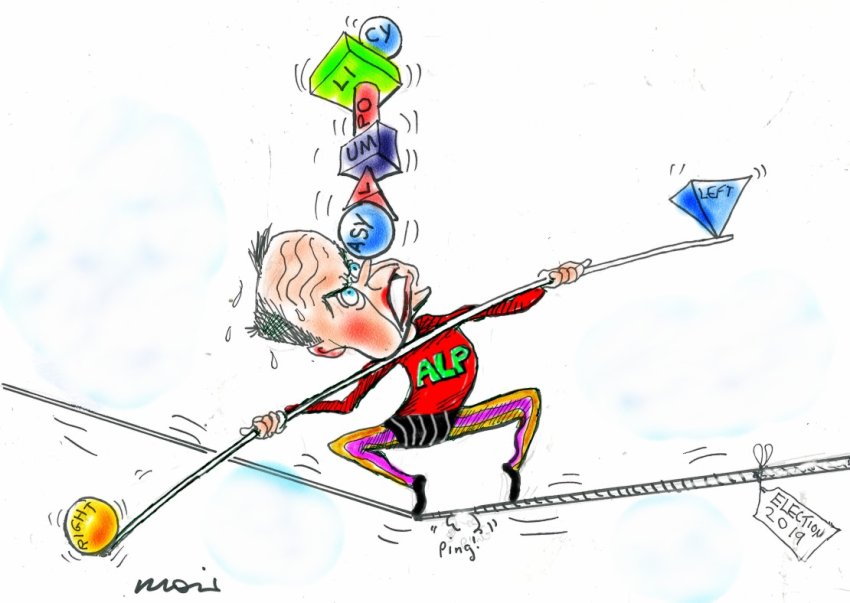
Children are off Nauru, Hakeem is back in Australia and parliament has passed the medical evacuation bill. For what feels like the first time in forever, the refugee rights movement is making gains.
True, these gains are small and limited — but they are gains, nonetheless.
The passing of the Home Affairs Legislation Amendment (Miscellaneous Measures) Bill 2018, better known as the medivac bill, was met with celebrations on Manus Island and Nauru as well as within the refugee rights movement.
People have died because of the federal government’s refusal to evacuate refugees from offshore detention centres and bring them to Australia to receive medical care.
Previously, it could take years after a doctor recommended evacuation for a refugee to be brought to Australia. And the government has spent hundreds of thousands of dollars a year challenging medical evacuations in the courts.
Now, the entire process will take less than a week. This means lives will be saved.
The passage of the medivac bill is an important blow to the Scott Morrison government, and not just because it marked the first time in 90 years that a government lost a vote on its own legislation.
It’s because the bill represents a defeat for the government’s fear mongering, lies and vilification of refugees.
The bill, however, has its limitations, partly due to Labor’s amendments.
The final bill only applies to people currently being detained on Manus Island and Nauru.
Moreover, people will continue to be held in indefinite detention once evacuated to Australia and applications can be denied if the “minister reasonably believes the person would expose the Australian community to a serious risk of criminal conduct”.
Independent MP Kerryn Phelps and Labor argued that the bill strikes the right balance between dealing with a medical crisis and not weakening border protection.
In short, the bill does not challenge the core of Australia’s detention system, in particular boat turnbacks. Australia’s borders are still as closed and inhumane as they were a week ago.
Meanwhile, Labor continues to support boat turnbacks and mandatory detention, and is showing no sign it will change.
This is despite the outpouring of support for getting children off Nauru, bringing Bahraini football player and refugee Hakeem al-Araibi back to Australia and the medivac bill, all of which indicates there is broad backing for pro-refugee policies.
So what does this all mean for the refugee rights movement?
Three wins in a short space of time is significant for a campaign that has suffered numerous setbacks and few wins. It gives the movement hope, something that is much needed.
These recent events demonstrate that a large part of Australian society rejects racist fear mongering and is supportive of refugee rights.
The Save Hakeem campaign has also demonstrated the power of community campaigns. In Araibi’s case, it was the football community — fans, players, governing bodies and key figures such as former Socceroo Craig Foster — that led the campaign. They did so with the support of the Australian Council of Trade Unions (ACTU).
It shouldn’t be forgotten that the Australian government was responsible for putting Araibi in danger by illegally alerting Thailand to the fact that Bahrain — the country he had fled — had issued an Interpol Red Notice for his arrest. It was only due to the Save Hakeem campaign that the government shifted its position and requested his return to Australia.
Getting children off Nauru and the medivac bill have come about after years of tireless campaigning by grassroots activists. Stalls, petitions, sit-ins, film screenings, trips to detention centres, nurses and doctors risking charges to reveal the abuses happening in detention centres and mass mobilisations all contributed to the groundswell of support that led to these wins.
With some wind in our sails, the refugee rights movement must push on.
It looks likely that Labor will win the federal election. This means we really need to turn up the heat and call on Labor to end its support for boat turnbacks and mandatory detention.
The medivac bill is the first pro-refugee piece of legislation to have been passed in a long time.
Hopefully it signals a turning point — one in which the campaign grows strong enough to make the whole detention system too politically costly to maintain.
[Zebedee Parkes is a Socialist Alliance member and an activist with the Refugee Action Coalition (Sydney).]